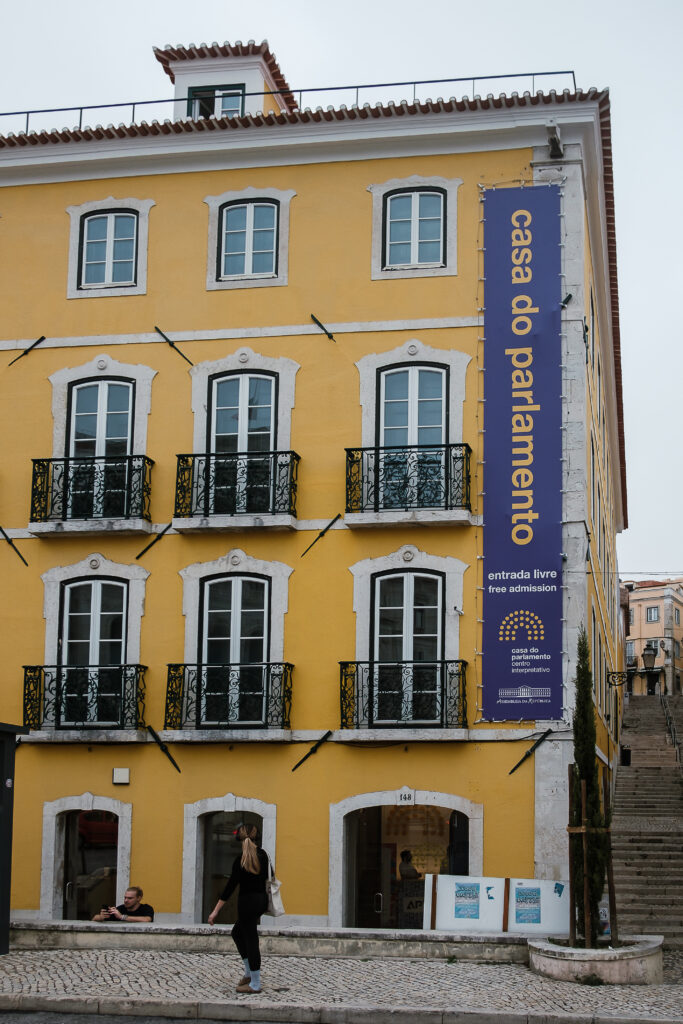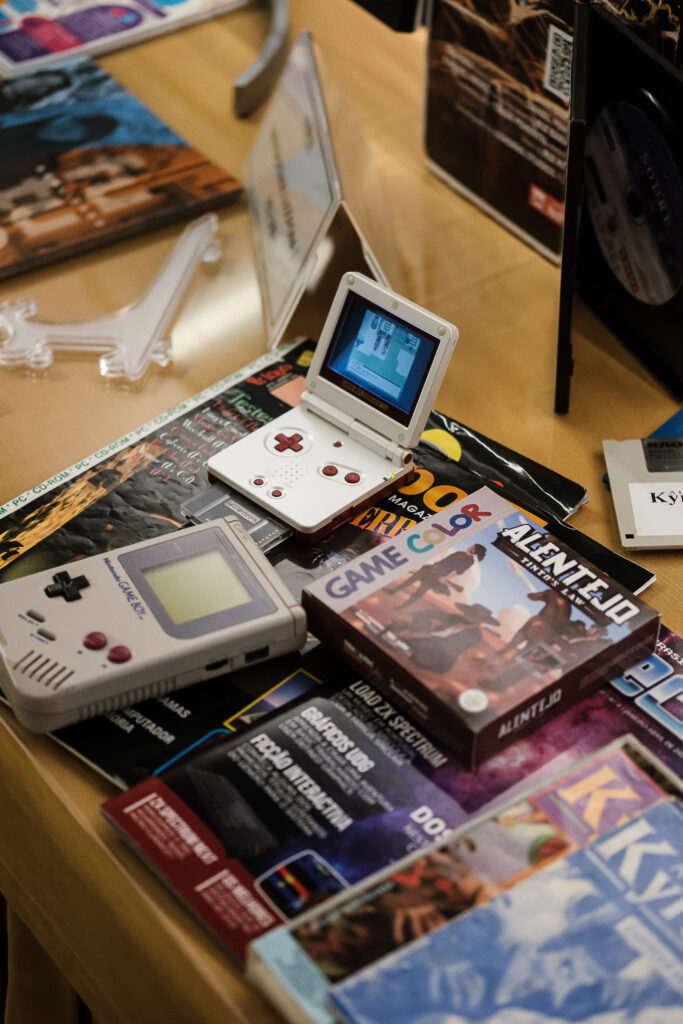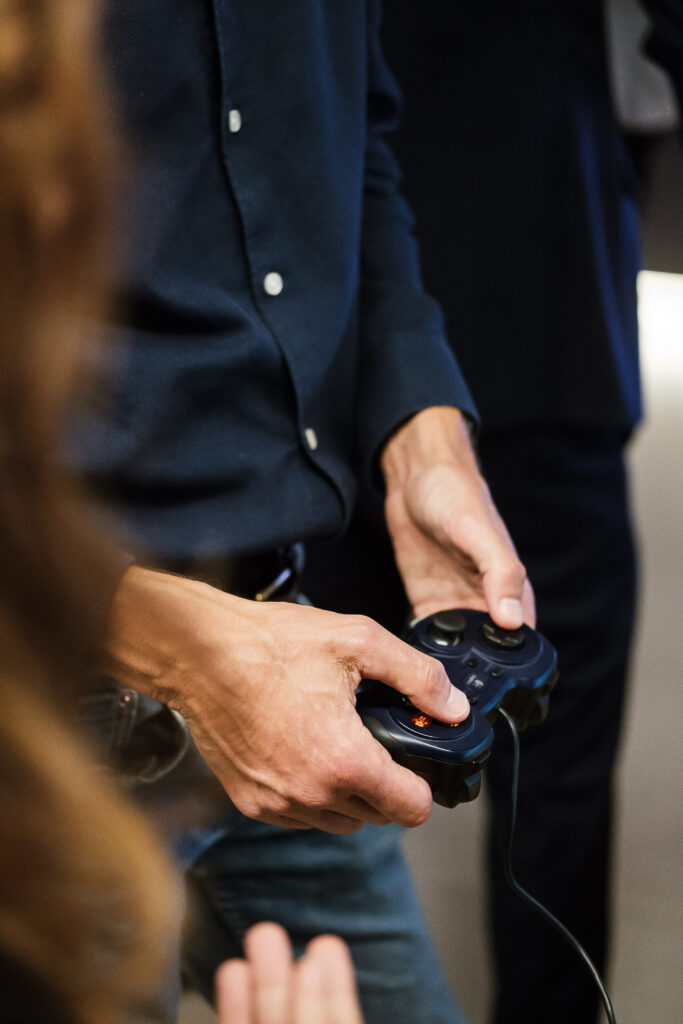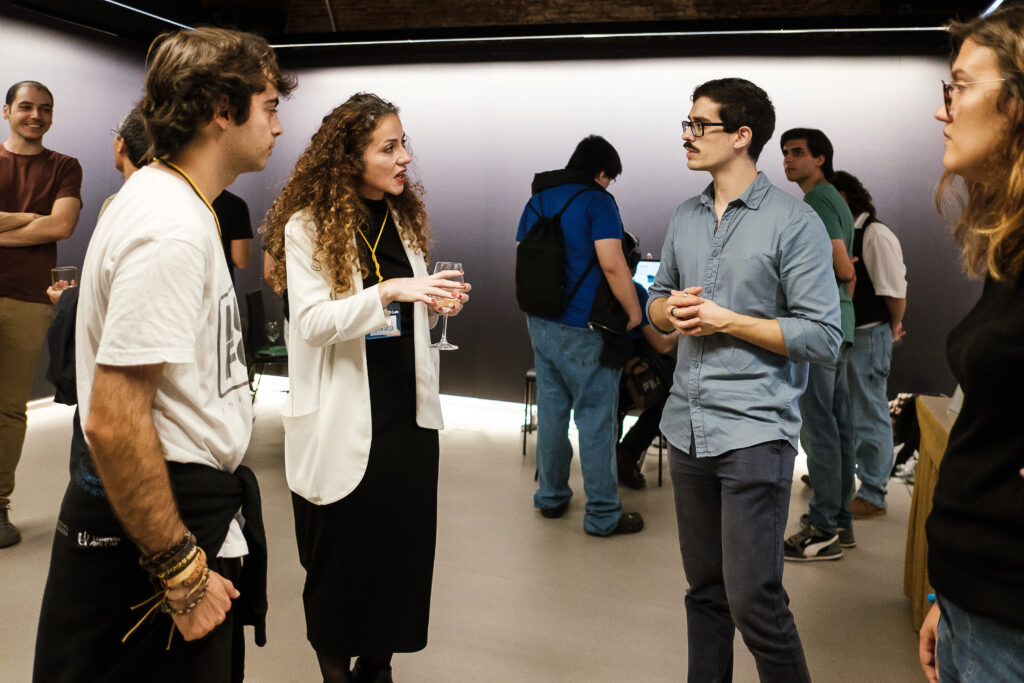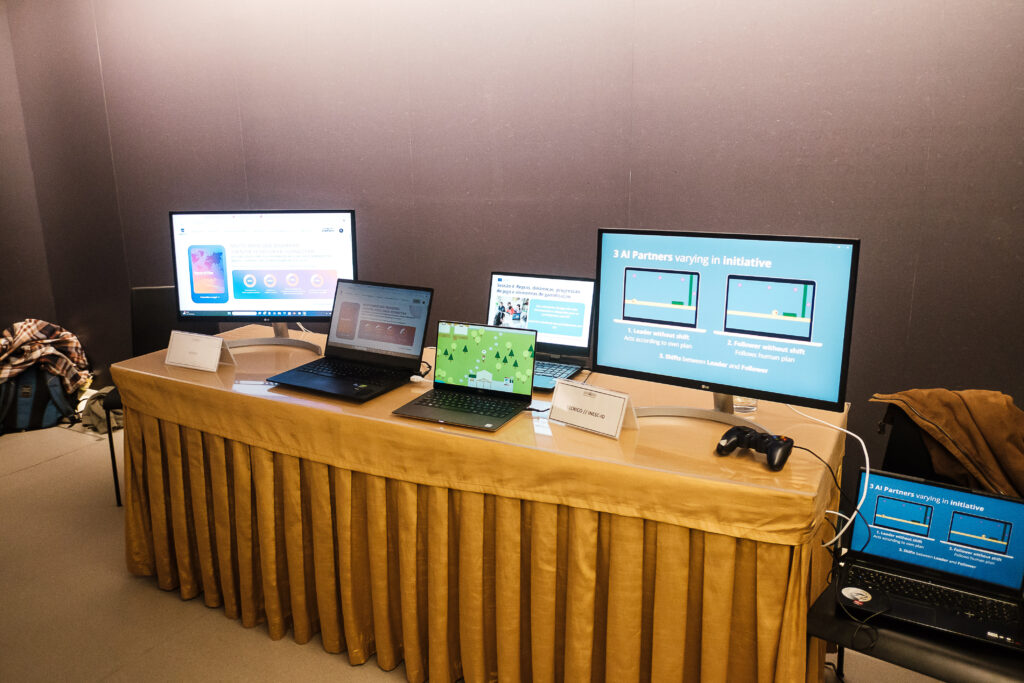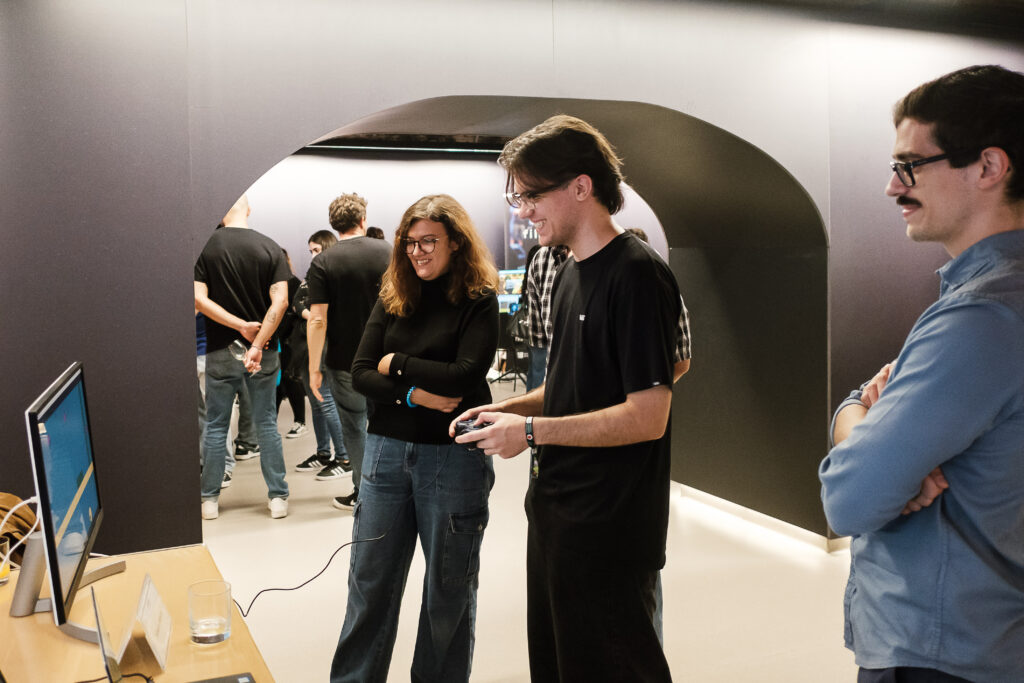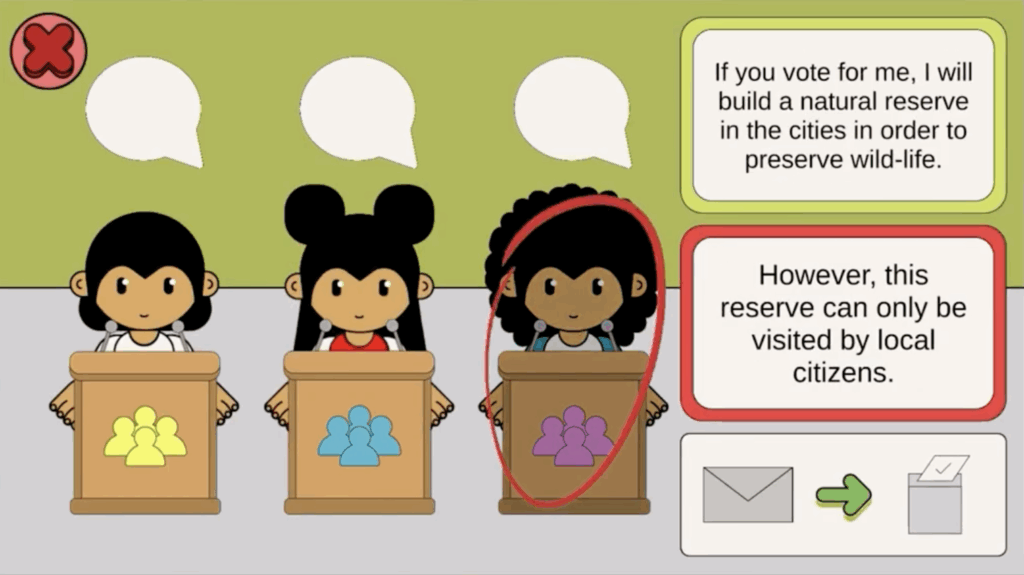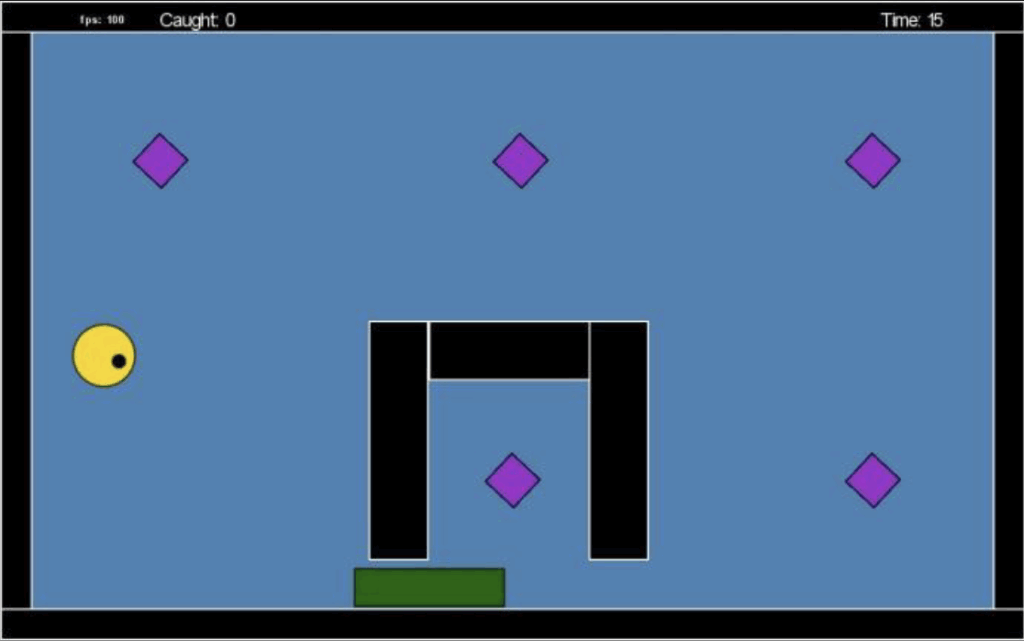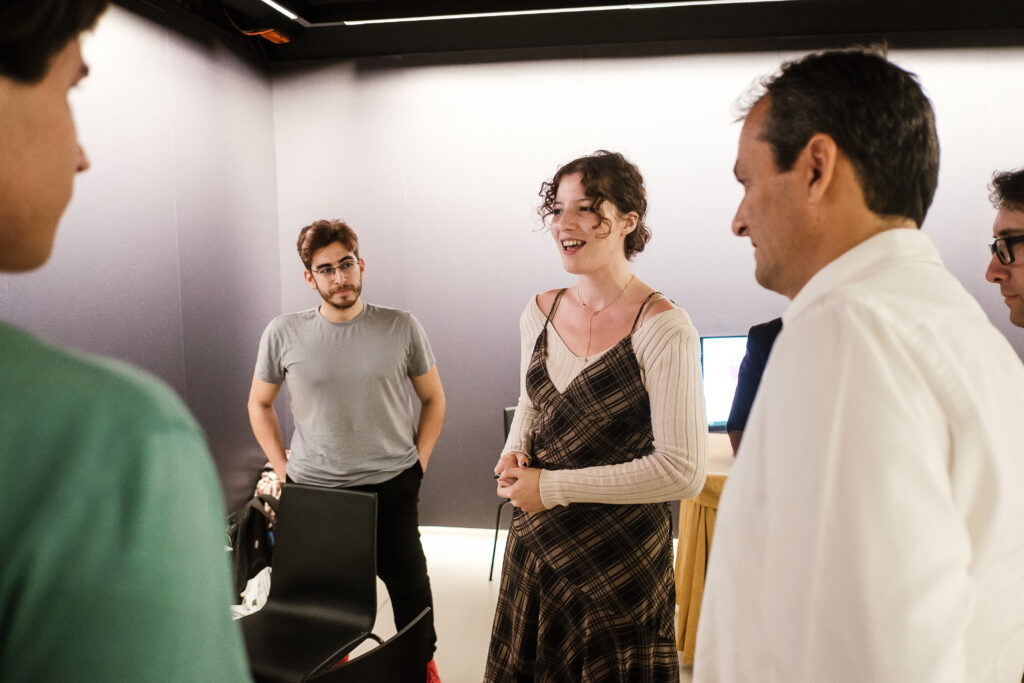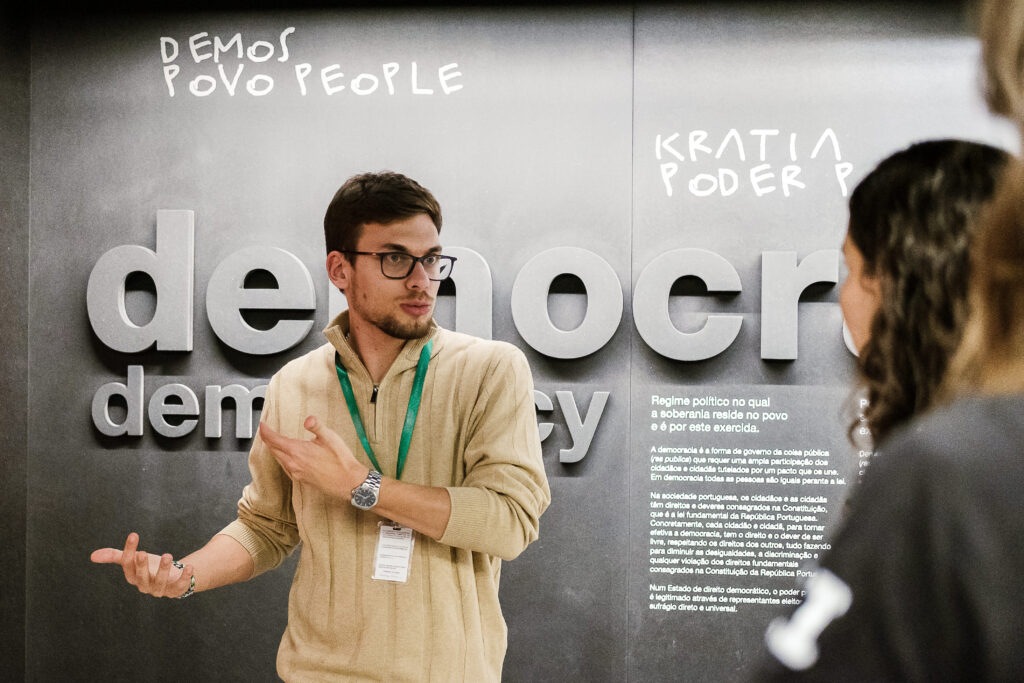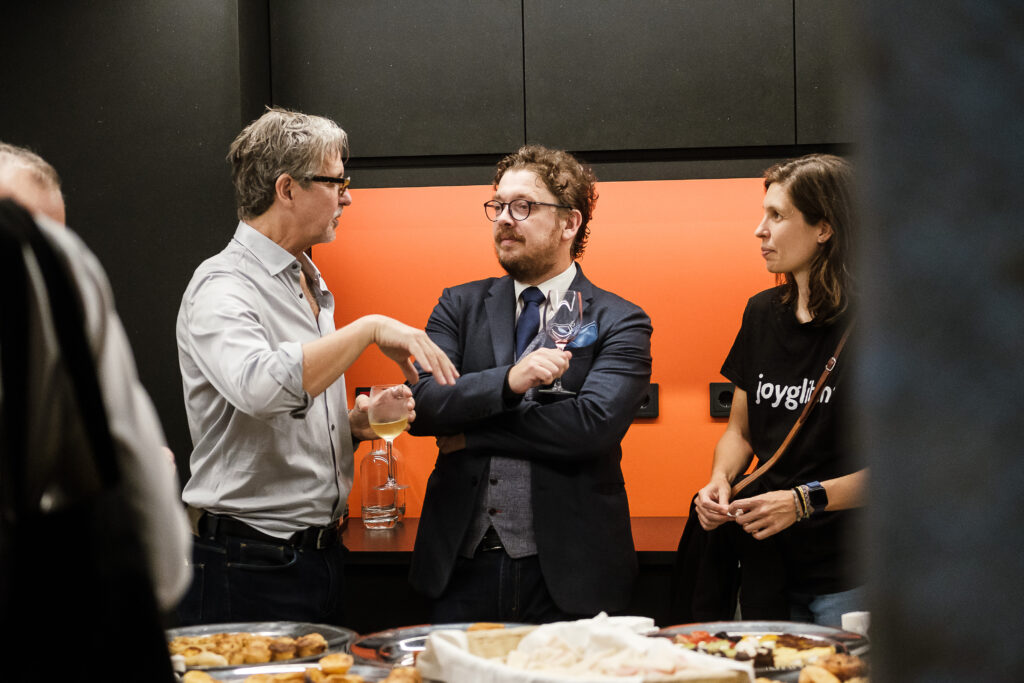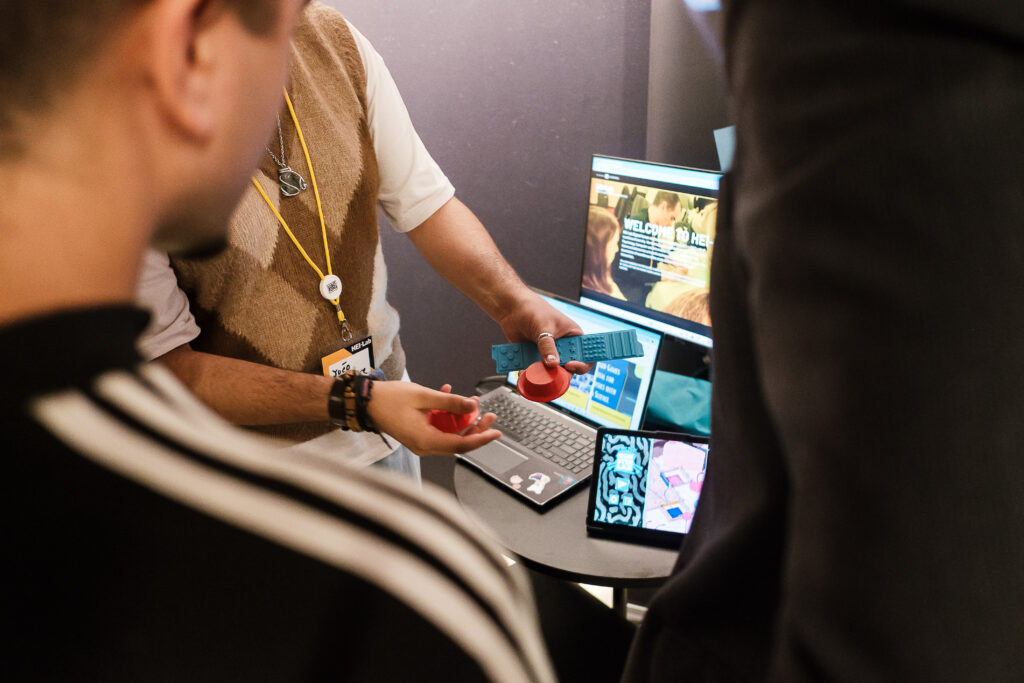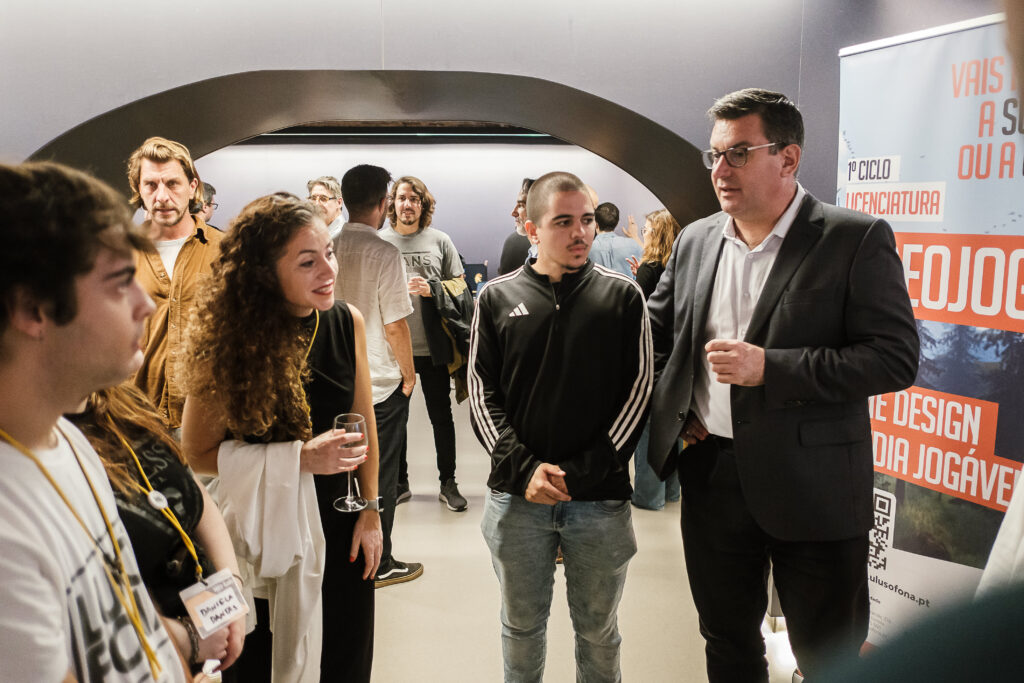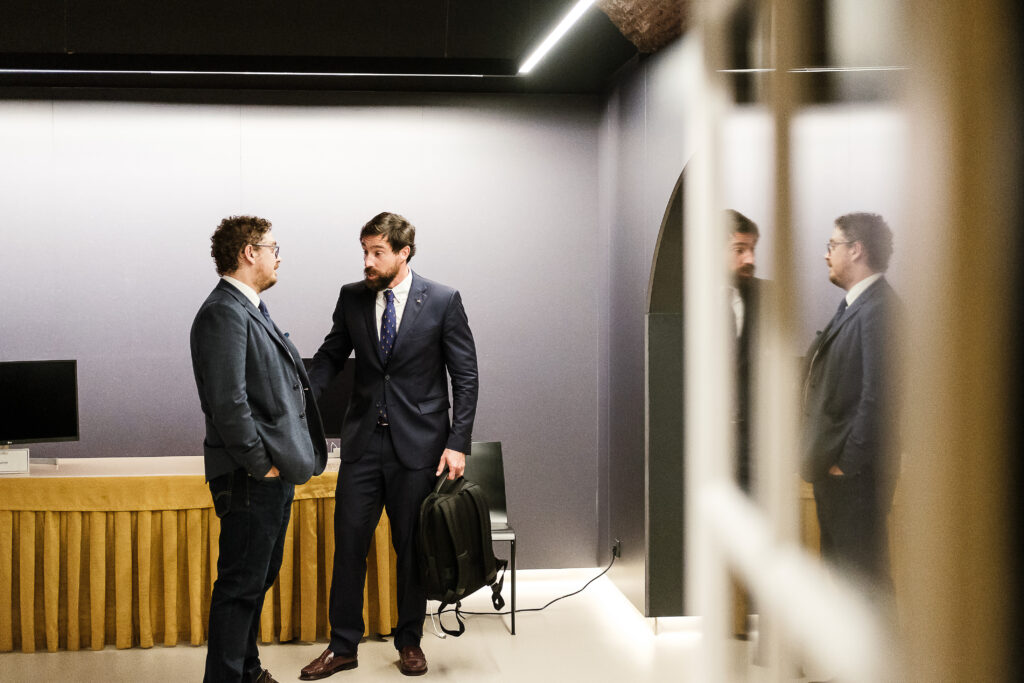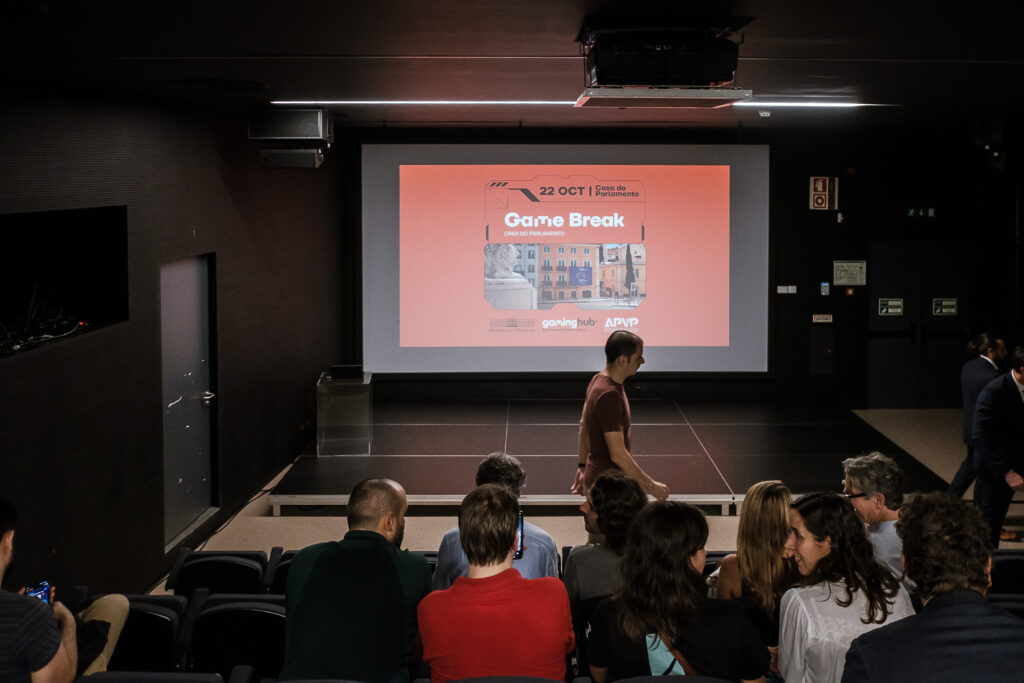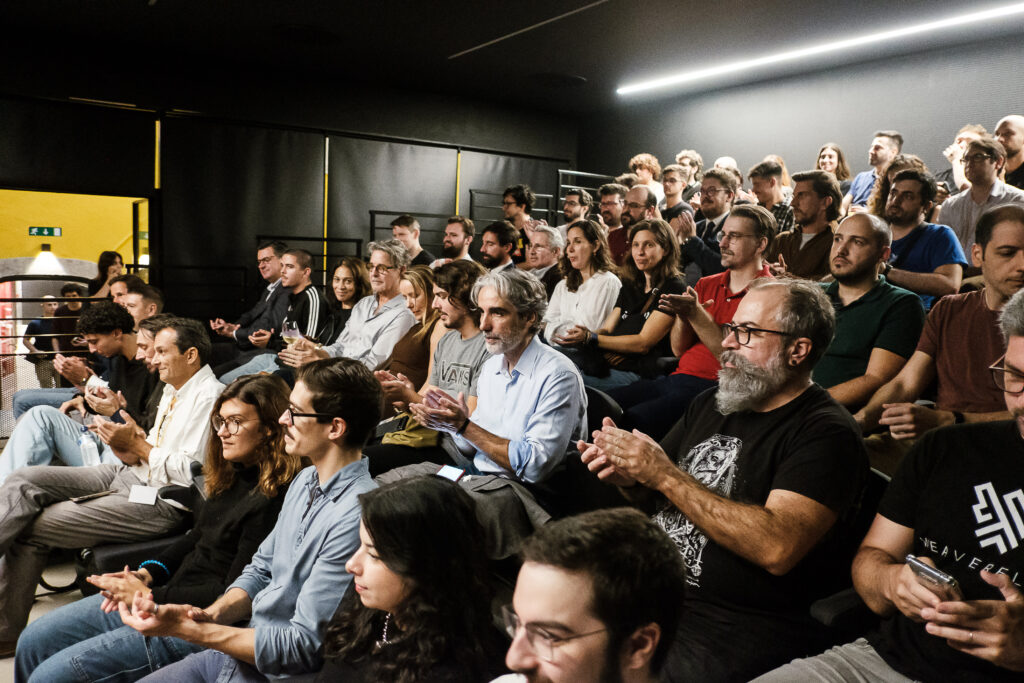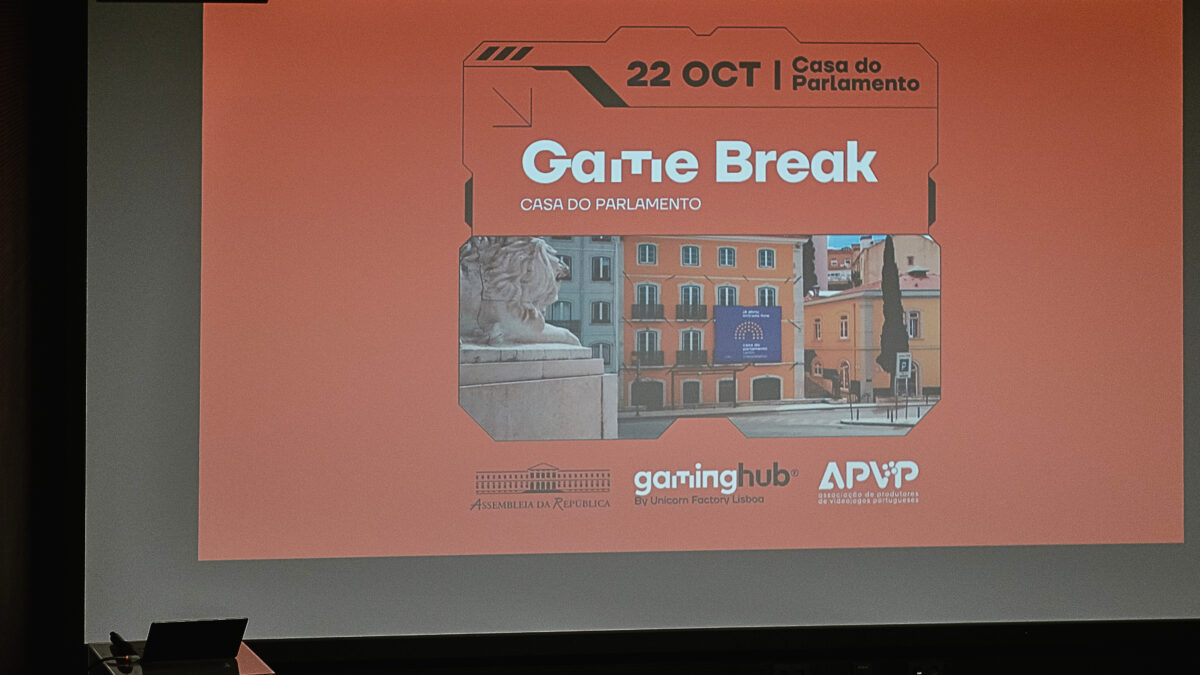
Serious games go to Parliament: INESC-ID showcases research-driven play for inclusion, trust and social good
In the house of democracy, all sorts of games are played. But on October 22, a few members of parliament and advisors only had to cross the street from Assembleia da República to Casa do Parlamento, an interactive and multimedia centre dedicated to the history and functioning of the Portuguese Parliament, to step into a different kind of game: discovering how video games are being used for social good, including contributions from INESC-ID in the field of serious games and Portugal’s video game industry.
This special edition of Game Break, organised by the Gaming Hub at Unicorn Factory Lisboa, with the support of the Portuguese Video Game Producers Association (APVP), brought together policymakers, researchers, industry professionals, universities and civil society to explore together how video games are shaping the future of the sector in Portugal.
Inês Lobo and Miguel Belbute, PhD students in the Artificial Intelligence for People and Society scientific area (at GAIPS), represented INESC-ID with interactive demonstrations of two serious games: All Sustainable and Geometry Friends. Both projects reflect the institute’s thematic line on Societal Digital Transformation, which explores how digital technologies can empower informed decision-making and promote inclusivity and positive social change.
Co-designing sustainability and inclusion
All Sustainable, a digital game designed to teach sustainability concepts, is the result of a collaboration between INESC-ID researchers at GAIPS and users from CERCIOEIRAS. Across five co-design sessions, participants contributed to the game’s content and structure, from defining challenges related to sustainability and independent living, to deciding gameplay elements like narrative, rules, and characters. This gave participants a chance to help develop something they found both relevant and fun, reinforcing the inclusive philosophy behind the project.
Initially created for people with intellectual disabilities, the game has proven to be a valuable tool for helping children develop sustainability-related skills. It is now also being adopted in schools.
“It’s incredibly rewarding to develop these games for minority groups and to see more people interested in getting them to those who need them,” says Miguel Belbute. “But what excites me most is seeing the results. For instance seeing neurodivergent children play and knowing it’s making a difference.”
For Miguel, who enjoys showing the “human” side of games, the fact that All Sustainable was co-designed with people with intellectual disabilities allows to better understand their relationship with digital games and what really connects them to the experience. That was one of the key messages he and Inês Lobo shared with the many visitors, from parliamentary advisors and game industry professionals to university professors and students from across the country.
Trust isn’t a simple game
In turn, Geometry Friends, demonstrated by Inês, is a 2D puzzle platformer game where two characters, a circle and a rectangle, each with unique movement abilities, must collaborate to collect diamonds and complete levels. Designed as a cooperative game, the characters, representing a human and an autonomous agent, need to work together to reach a common goal.
“In our study, we use this game to explore how people perceive different types of agents — those that lead the game and those that follow the player’s plan,” she explains.
The reactions, Inês notes, are far from predictable. “They depend not only on personal preferences, such as favouring cooperative or competitive games, but also on the framing of the game itself: whether it’s presented as a collaborative mission or not.”
Also developed by GAIPS , Geometry Friends serves as a platform for AI research, including reinforcement learning and studies in human-agent collaboration. Its design requires players, whether human or AI, to combine efforts and unique capabilities, making it an ideal “laboratory” for developing artificial intelligence. The game provides inexpensive virtual simulations where algorithms can be tested and refined across thousands of interactions; research that has direct implications for the design of systems we interact with every day, from virtual assistants to social robots.
Serious games, a serious business
Serious games are not designed to simply entertain, but to educate, train and inform. Used in contexts such as education, healthcare or professional training, these games are gaining ground as tools for social transformation.
Miguel and Inês noted that several members of parliament showed genuine curiosity. “The majority had no idea about the dimension of the gaming industry or what was happening in the field,” Miguel shared.
In fact, far from being just child’s play, according to a study by Bain & Company, video games are already the world’s largest entertainment industry, expected to generate €190 billion in revenue in 2025. Serious games are also growing fast, with a market estimated at €14 billion and annual growth rates of up to 25% through 2030. In Portugal, with over 160 active video game studios, projected 2024 revenues above €100 million and a 60% annual growth, the national video game industry is thriving.
As digital technologies increasingly influence how we learn, decide, and engage with each other, INESC-ID has an important role to play. The growing momentum of the video game industry — and the research driving it — holds real potential for impact. And if we want a more participatory and inclusive democracy, maybe it’s time we start taking games more seriously.
—
Text by Rodrigo Abril de Abreu | Head of Communications and Outreach Office, INESC-ID
© 2025 INESC-ID. Credit INESC-ID and the author, with a link to the original source, when sharing this article.
Images: APVP
